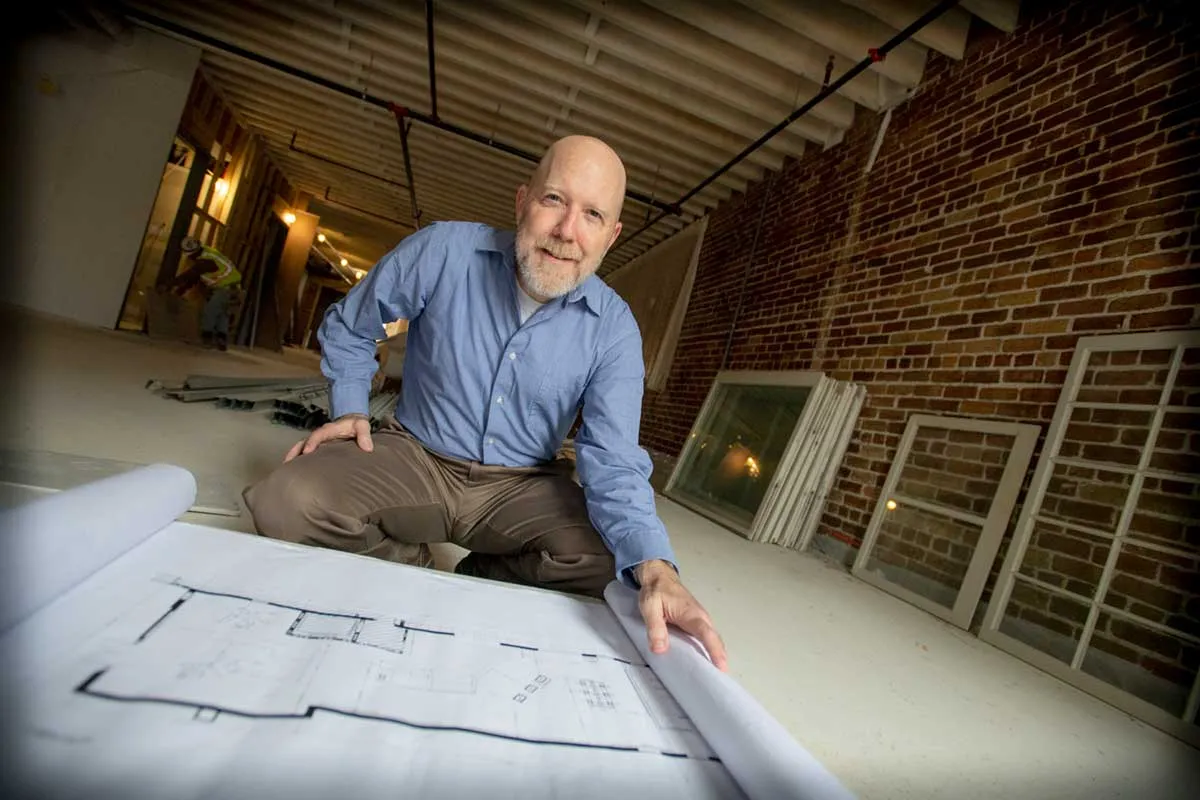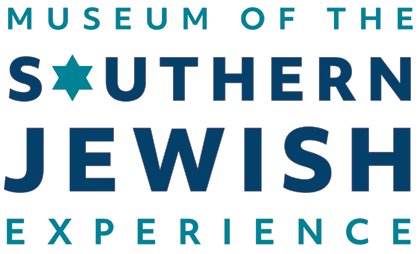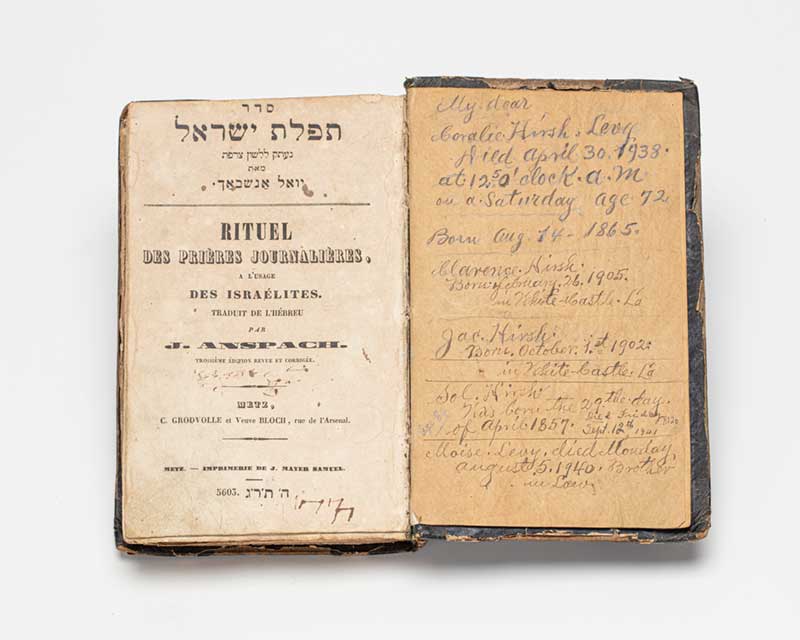

Did you know that as a seven-year-old boy, Louis Armstrong was taken in by the Karnofskys, a New Orleans family of Jewish immigrants from Lithuania? They helped him purchase his first cornet, and for the rest of his life, Armstrong wore a necklace with a Jewish Star on it as a reminder of their kindness. This story, while not typical of the Southern Jewish experience, opens the door to new ways of thinking about Southern history. Once opened, you may be surprised by what you find.
The history of the South is rich in culture, contribution, conflict, and cooperation that comes with exploring the often-overlooked history of various immigrant groups who came South—strangers in a strange land, if you will. In an effort to tell a more comprehensive story of New Orleans, the Gulf South, and the U.S., the Museum of the Southern Jewish Experience will open in New Orleans in early 2021. Located just blocks away from the National WWII Museum, the Ogden Museum of Southern Art, and the Contemporary Arts Center, the museum is poised to become an important educational facility, a heartfelt testament to the legacy of Judaism in the South, and a vibrant center for cultural exploration and understanding.

The Museum of the Southern Jewish Experience will be the only museum in the country to explore the history and culture of Jews across the South, from Virginia to Texas, Arkansas to Florida, in big cities and small towns. It’s a history that goes back in places to Colonial times, but one that is both dynamic and enduring, mirroring—and bumping up against—the history of regional, national, and world events. During the Revolutionary War, Mordecai Sheftall, an Orthodox Jew of Savannah, Georgia, became the highest-ranking Jewish officer in the Colonial forces. He helped defend the city from British invasion, lent a considerable sum to the American cause, and served time as a British prisoner of war. By 1900, Jewish communities thrived throughout the South, with more than 125,000 Jews living in hundreds of cities and towns. As merchants, they helped the South recover from the Civil War. As civic leaders, they served as mayors, aldermen, and judges. All the time, they made choices about how to fit in as Southerners and when to stand out as Jews. It is those choices that give these stories their universal appeal and offer us lasting lessons.
The museum’s board of directors chose New Orleans as our home based on the city’s vibrant tourism economy, its rich Jewish history, and the presence of Tulane University, with its sizeable Jewish student population and impressive Department of Jewish Studies. Partnering with Tulane’s Center for Public Service, the museum has so far worked with nine student interns cataloging artifacts, researching documents, and preparing for the museum’s opening. Once open, the museum will continue to offer Tulane students real-world experience in the museum field. And together with the School of Liberal Arts Department of Jewish Studies, the museum also hopes to implement student research projects on Jewish history across the South.
Beyond focusing a light on part of the South’s lesser-known history, the museum aims to expand visitors’ understanding of what it means to be Southern, what it means to be a Jew, and ultimately, what it means to be an American. The lessons of tolerance, strength in diversity, and community that shine through the Southern Jewish story are universal lessons—not lessons to be forced onto people, but lessons to be experienced and shared in engaging and approachable ways.

The museum’s unique collection of artifacts—from Judaica brought by immigrants to Ardmore, Oklahoma, to dry goods store ledgers from Shaw, Mississippi, and a wedding dress worn at a Jewish wedding in New Orleans in the 1880s—provide the building blocks of three galleries of interactive exhibits. Non-Jewish visitors will learn the basics of Judaism in a special exhibit designed to explore Jewish beliefs, life cycle events, and holidays. Children will get to choose what they would pack if they were moving to another country and if they only had one suitcase. All visitors can explore Jewish history state-by-state on a wall-sized interactive touch screen. Visitors to the Museum of the Southern Jewish Experience, Jewish and non-Jewish alike, will leave not only understanding something about Southern Jews and Judaism but may also gain more understanding about themselves and their own experiences as strangers in a strange land. So, as we say at MSJE, “Shalom. Make yourself at home.”
Center for the American Jewish Experience at Tulane University
In Summer 2019, a gift from Stuart and Suzanne Grant founded Tulane University’s new Center for the American Jewish Experience. Through their generosity, the Grants’ gift is supporting more research faculty in the Department of Jewish Studies and operating support for the new Center. Building on this momentum, the department just received an anonymous gift to support an endowed chair in contemporary American Jewry. This new professor will serve as a bridge linking Jewish history to its contemporary application in the twenty-first century.
The Center for the American Jewish Experience will promote cross-disciplinary learning—a principal ideal of the School of Liberal Arts—in a way that emphasizes the global orientation of the American Jewish experience. The Center will also partner with various departments and programs across the University to facilitate this learning, such as the Stone Center for Latin American Studies, to redefine the fields of Latin American and Caribbean Jewish Studies, to organizations off campus such as the Museum of the Southern Jewish Experience.
This world-class facility will host the one in four students that enroll in a Jewish Studies course while at Tulane, and will provide exciting opportunities for a holistic study of American Jewry building on the department’s interdisciplinary approach to learning about the evolution of Judaism, Jewish culture, and Jewish nationalism from biblical times to the present.
Jewish Studies continues its transformation into a world-class department by raising funds for an endowed chair in American Jewish history, as well as increased operating support for its dynamic slate of action-oriented public programs, innovative student engagement activities, and cutting-edge research opportunities.
For more information, visit https://liberalarts.tulane.edu/jewish-studies.
MSJE Executive Director Kenneth Hoffman is a 1988 graduate of Tulane’s College of Arts & Sciences and earned an M.A. in history from Tulane in 1993. He wrote his thesis on the Jews of Port Gibson, Mississippi. For more information on MSJE, visit www.msje.org.

